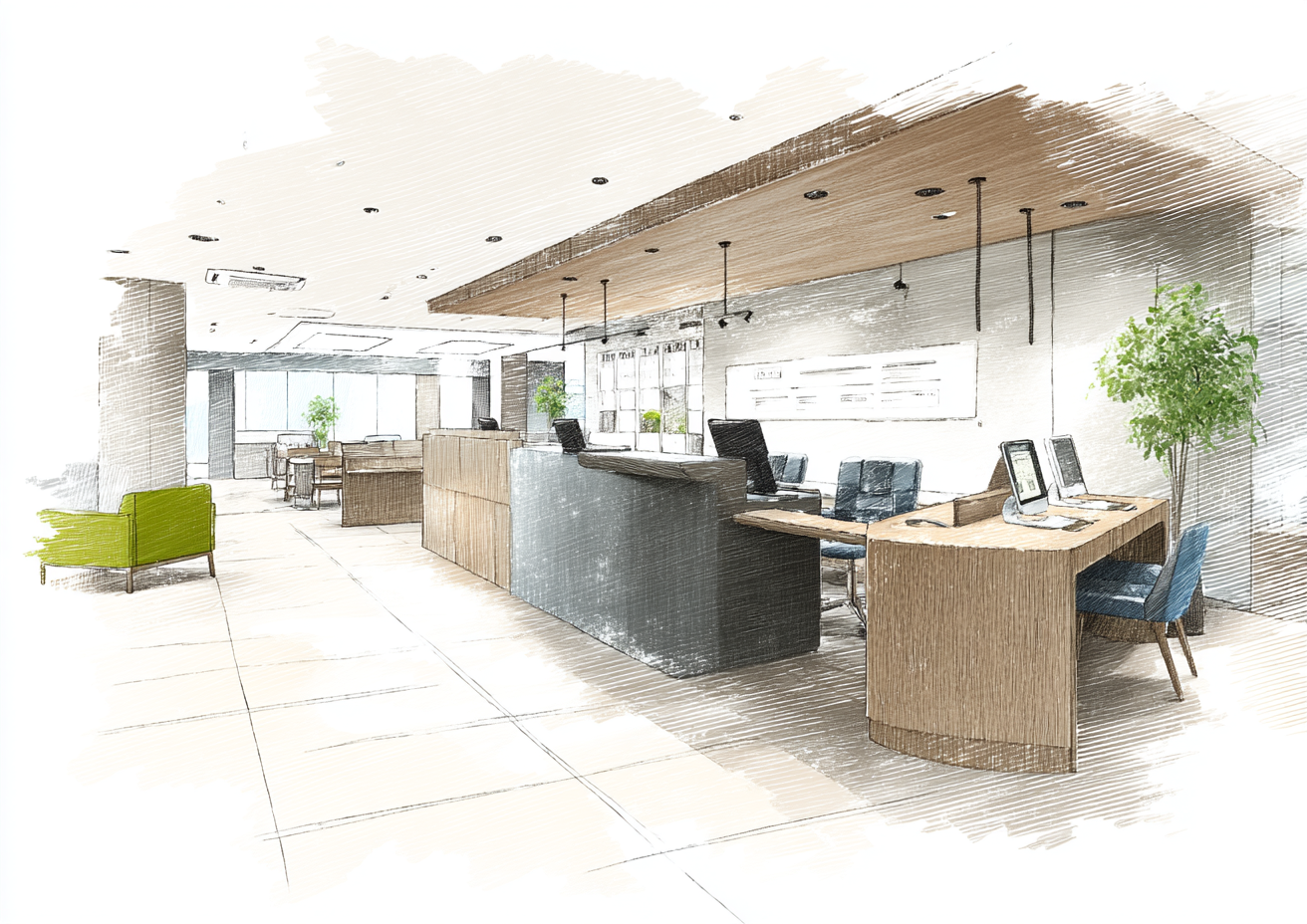Hire Resident Care Attendant (RCA): Resident Care Attendants (RCA) play a crucial role in the Elderly Care Services industry. By hiring top talent, organizations can enhance care quality, improve resident satisfaction, and ensure smoother operations. Effective staffing leads to better service delivery and long-lasting relationships with clients.
Why Hire a Resident Care Attendant (RCA)?
Hiring a Resident Care Attendant (RCA) is essential for organizations focused on delivering high-quality elderly care. The right RCA can significantly impact the overall success of care programs.
- Enhanced Quality of Care: RCAs are trained to provide personal care and support with daily activities. This improves the quality of care residents receive, leading to better health outcomes and higher satisfaction rates.
- Operational Efficiency: By hiring RCAs, organizations can streamline operations and allocate resources more effectively. RCAs help reduce workload on nurses and other staff, allowing them to focus on critical tasks.
- Specialized Skills: Many RCAs possess skills tailored to elder care, such as ADL (Activities of Daily Living) support. This expertise enables them to provide essential assistance, ensuring that residents maintain their dignity and independence.
- Reduced Turnover Rates: When organizations invest in hiring quality RCAs, they often see lower turnover rates. Thus, a stable workforce contributes to better team dynamics and consistent care for residents.
- Improved Client Relationships: With skilled RCAs, organizations can foster stronger relationships with residents and their families. Satisfied clients often lead to referrals, enhancing the organization’s reputation.
What Are the Types of Resident Care Attendant (RCA)?
- Personal Care Aide: This type of RCA assists residents with daily tasks such as bathing, grooming, and feeding. Their supportive presence helps maintain the dignity of those they care for.
- Activity Coordinator: Activity coordinators plan and conduct social and recreational activities for residents. They can enhance mental wellness and promote social interaction among seniors.
- Medication Aide: Medication aides ensure residents take their medications as prescribed. Their attention to detail is crucial for preventing medication errors and addressing health concerns.
- Companion Aide: These RCAs provide emotional support and companionship to residents. Their role helps alleviate loneliness and improve the overall emotional health of elderly individuals.
- Health Monitoring Aide: This type of RCA focuses on monitoring residents’ vital signs and health condition. Their observations can alert medical staff to potential health issues early on.
Where to Find Resident Care Attendant (RCA)?
- Online Job Boards: These platforms allow organizations to post job listings and search for RCA candidates. While effective, this method can result in a high volume of applications, making it time-consuming to filter through resumes.
- Staffing Agencies: Partnering with staffing agencies saves time and effort in recruitment. Agencies like Pulivarthi Group provide pre-vetted candidates, ensuring quality placements that meet your needs.
- Professional Networks: Networking within the industry can uncover hidden talent. While this method can yield quality candidates, it may take longer to find the right fit compared to using specialized services.
- Vocational Schools: Many vocational programs train aspiring RCAs. Connecting with these institutions can lead to fresh talent eager to start their careers in elder care, although experience levels may vary.
What Are the Challenges Faced While Hiring Resident Care Attendant (RCA)?
- Assessing Skills: Evaluating the skills of RCA candidates can be challenging. It is important to ensure they possess the necessary competencies to provide quality care and meet the demands of the job.
- Ensuring Cultural Fit: Finding candidates who align with the organization’s values and culture is essential. A poor cultural fit can lead to conflicts and a negative work environment.
- Managing High Turnover Rates: The elder care industry often faces high turnover rates among RCAs. This can disrupt care continuity and impact the quality of service offered to residents.
- Compliance Issues: Adhering to regulations and standards in hiring can be complex. It’s crucial to ensure that candidates possess the required certifications and licenses to provide safe care.
- Limited Pool of Candidates: The demand for RCAs often exceeds supply, making it difficult to find qualified candidates. This situation can lead to rushed hiring decisions that may compromise care quality.
What Qualifications and Licenses Must a Resident Care Attendant (RCA) Have?
- High School Diploma or GED: Basic education is essential for RCAs, as it lays the foundation for further training in caregiving and communication skills.
- State Certification: Many states require RCAs to obtain specific certifications. This ensures that candidates meet minimum standards for safety and care practices.
- CPR and First Aid Certification: RCAs should be trained to respond to emergencies effectively. These certifications are critical for ensuring the safety of residents.
- Previous Caregiving Experience: While entry-level positions are available, prior experience in caregiving often enhances an RCA’s ability to provide quality support. Hands-on experience develops skills and emotional intelligence needed in elder care.
Sample Resident Care Attendant (RCA) Job Description
Job Overview: A Resident Care Attendant (RCA) provides essential support to elderly residents by assisting with daily activities and promoting their well-being.
Key Responsibilities: Responsibilities include assisting with personal care, monitoring residents’ health, and facilitating social activities.
Required Skills: Key skills include effective communication, patience, empathy, and basic healthcare knowledge.
Qualifications: Candidates should have a high school diploma and relevant certifications.
Resident Care Attendant (RCA) Interview Questions: What to Ask Resident Care Attendant (RCA) at the Interview
- Can you describe your experience with elder care? This question gauges their hands-on experience and understanding of the unique needs of seniors.
- How do you prioritize tasks when caring for multiple residents? This question assesses the candidate’s time management and organizational skills in a caregiving setting.
- Can you provide an example of how you handled a challenging situation with a resident? This question reveals their problem-solving abilities and emotional intelligence.
- What steps do you take to ensure resident safety? This question helps evaluate the candidate’s commitment to safety and quality care in their practice.
- How do you engage with residents to promote their emotional health? This question assesses their understanding of the importance of emotional well-being in elder care.
When Should I Hire a Resident Care Attendant (RCA)?
Hiring a Resident Care Attendant (RCA) becomes crucial during peak project demands, when expanding services, or when filling critical skill gaps within your team. If your current staff faces workload challenges or if residents require additional support, it is essential to bring in RCAs to maintain quality and efficiency in care delivery.
How Can I Test Resident Care Attendant (RCA) Skills?
- Role-Specific Assessments: Conducting skill-based assessments can effectively evaluate a candidate’s practical abilities. This approach allows you to see their skills in action and determine their fit for the role.
- Real-World Tasks: Assigning real-life scenarios during interviews can help assess how candidates respond to practical caregiving situations, providing insight into their problem-solving skills.
- Work Samples: Reviewing past projects or case studies can offer a perspective on the candidate’s experience and success in similar roles.
- Simulation Exercises: Running simulation scenarios can illuminate how candidates manage stress and make decisions in challenging situations typical of elder care environments.
How to Conduct an Effective Cultural Fit Assessment for Resident Care Attendant (RCA)?
- Ask Situational Questions: Inquiring how candidates would handle specific scenarios can reveal their values and approach to care, ensuring they align with your organization’s culture.
- Review Alignment with Company Values: Discussing your organization’s core values during the interview can gauge whether candidates share a similar philosophy regarding care and service.
- Involve Team Members: Including team members in the interview process encourages a collaborative approach to assessment, ensuring candidates fit well within the existing team dynamics.
- Observe Interaction with Residents: If possible, observe candidates interacting with residents. This can provide direct insight into their interpersonal skills and natural demeanor in a caregiving setting.
What Is the Average Salary of a Resident Care Attendant (RCA) in the US?
The average salary for a Resident Care Attendant (RCA) in the U.S. ranges from $25,000 to $35,000 per year, depending on factors like location, experience, and the specific care facility. Urban areas often offer higher salaries due to increased demand for elder care services, while rural areas may have lower average pay rates.
What Are Some Resident Care Attendant (RCA)-Specific SOPs, and How to Create Them?
- Personal Care SOP: This procedure outlines the steps RCAs should follow for bathing, grooming, and dressing residents. Following these steps ensures consistent and respectful care.
- Medication Administration SOP: This ensures that RCAs understand the proper protocols for medication management, reducing errors and improving resident safety.
- Emergency Response SOP: Having clear guidelines in place helps RCAs act swiftly in emergencies, ensuring resident safety and well-being is prioritized in all situations.
- Documentation SOP: This standard procedure outlines how RCAs should document care provided. Accurate records are important for continuity and tracking resident progress.
How to Retain Resident Care Attendant (RCA) Effectively?
- Offer Competitive Benefits: Providing attractive benefits such as health insurance, retirement plans, and bonuses can help retain skilled RCAs and encourage them to stay long-term.
- Foster a Supportive Work Environment: Creating a positive work culture where RCAs feel valued and supported promotes job satisfaction, reducing turnover.
- Provide Professional Development Opportunities: Investing in training and education not only enhances the skills of RCAs but also demonstrates your commitment to their career growth, leading to increased loyalty.
- Encourage Open Communication: Establishing channels for feedback and open dialogue helps RCAs feel heard and acknowledged, contributing to a more cohesive team atmosphere.
Hire Resident Care Attendant (RCA) with Pulivarthi Group
Partnering with Pulivarthi Group is the best move for organizations seeking quality Resident Care Attendant (RCA) staffing. Our expertise in delivering pre-vetted and highly skilled RCAs ensures cost-effective solutions tailored to your needs. Let us help you achieve your goals and improve the quality of care you provide to residents.




